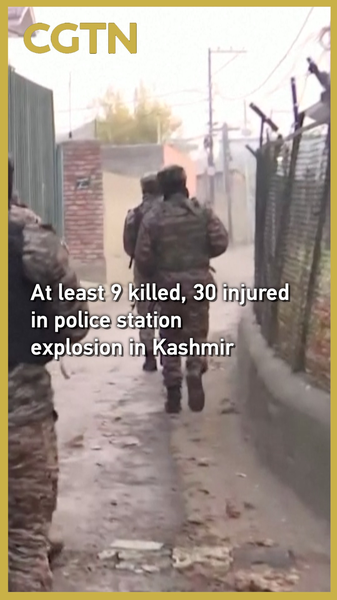Late Friday night, November 14, a powerful explosion tore through the Nowgam police station in Srinagar, the summer capital of Indian-controlled Kashmir, claiming the lives of at least nine people and injuring around 30.
According to local media, the blast happened as police officers and forensic teams were examining explosive materials seized in Faridabad, Haryana, brought in connection with a recent car bomb incident in Delhi. The explosion triggered a fierce blaze, engulfing the station building and several parked vehicles.
Most of the victims were uniformed personnel and forensic experts working to piece together evidence. Hospitals in Srinagar reported a surge of patients with severe burns and blast injuries, straining local medical resources.
Security analysts say the tragedy highlights the high-stakes nature of explosive forensics and the critical need for rigorous safety protocols. 'Whenever explosive materials are transported and stored, every step must prioritize containment and specialist training,' notes a global security expert.
As Kashmir attracts attention for its complex security landscape, this incident serves as a reminder of the dangers faced by front-line personnel. International law enforcement agencies are watching closely, with many likely to review their own handling procedures for seized devices.
While official statements from local authorities are still pending, the community in Srinagar is rallying around the affected families, and solidarity messages have poured in from around the world.
For young travelers and digital nomads exploring the region, experts advise staying informed about security advisories and following guidance from local authorities. This incident underscores the unpredictable risks in volatile areas and the importance of real-time information.
Reference(s):
At least 9 killed, 30 injured in police station explosion in Kashmir
cgtn.com




